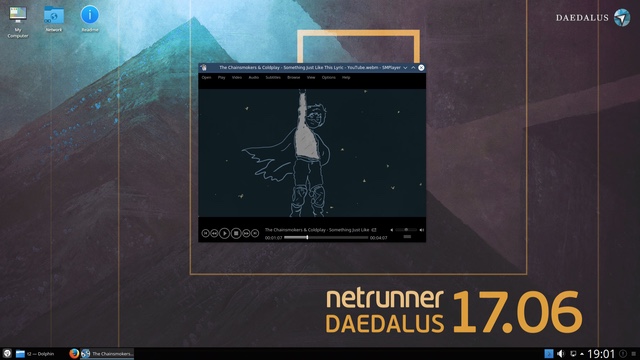
Netrunner 17.06 'Daedalus' Linux-based operating system available for download
There are so many quality Linux distributions nowadays, that it can be hard to choose one. Heck, when people ask my advice on which operating system to install, it can be tough for me to match a person to a distro. While choice is a good thing, I am a firm believer that there can be too much choice. When an ice cream shop has 100 flavors, you can feel like the correct decision is an impossibility. Sometimes just offering a choice between chocolate and vanilla is the best experience. Linux could benefit from a few less flavors.
While I am a Fedora user primarily, I recognize that what's good for me is not good for all -- especially those new to Linux. Windows-switchers in particular may not want to deviate from the user interface they have used for many years. It is for this reason that I often suggest Netrunner -- one of my favorite Linux distros. Its polished use of KDE creates familiarity, and the OS comes chock-full of useful apps -- it really is fantastic. Today, the Debian-based operating system reaches version 17.06 -- code-named Daedalus. It is not a massive update by any means, but it is still exciting.

Debian 9 'Stretch' is finally here -- download the Linux-based operating system now
Debian is a very popular Linux-based operating system, but its development does not exactly move at a breakneck pace. In other words, it tends to focus on stability rather than bleeding edge. In fact, the development of Debian 9 "Stretch" has been going on for over two years!
Today, Debian 9 'Stretch' finally sees release. It is chock full of changes from the prior version. While GNOME 3.22 is the default desktop environment, you can opt for plenty of others, such as Xfce, KDE Plasma, and MATE. Users will appreciate LibreOffice 5.2, which is included. Also of significance, MariaDB replaces MySQL.

Devuan Jessie is here -- download the systemd-shunning Debian-forked Linux distro now
One of the coolest things about open source software is the ability to fork it. What is forking? Very simply put, it is taking code and altering it so it can be taken in a different direction. This is usually done when people are dissatisfied with the current path of a project. A good example of this is LibreOffice, which is a fork of OpenOffice. As that example shows, sometimes the fork can become better and more popular than the original.
Systemd is a very polarizing topic in the Linux community, so it should come as no surprise that it would lead to a fork. You see, some Debian users disliked systemd so much that they decided to create a version of the OS without it. Devuan is that operating system, and today, the fork finally sees stable release.
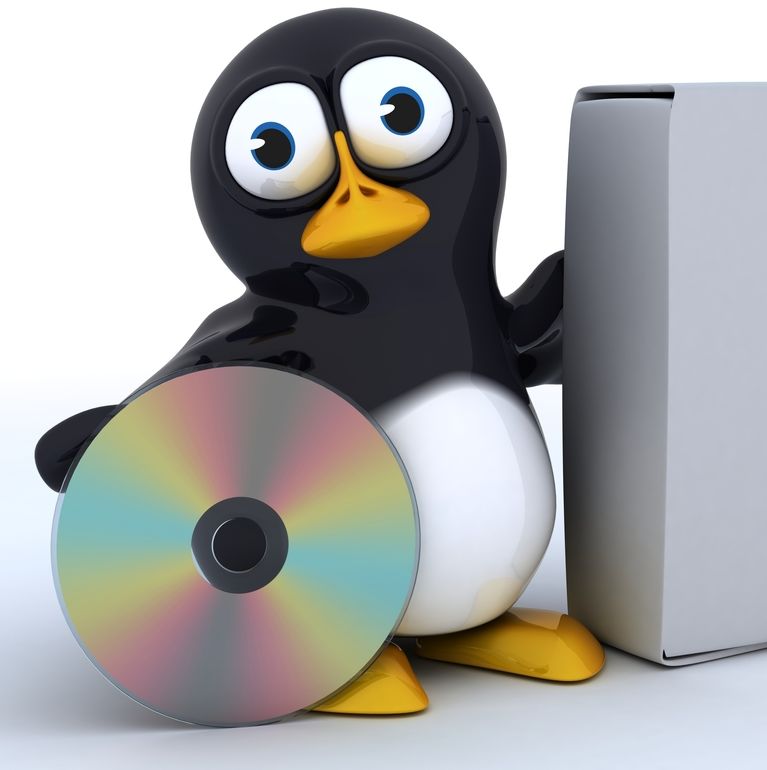
Privacy-focused Debian 9 'Stretch' Linux-based operating system Tails 3.0 reaches RC status
If you want to keep the government and other people out of your business when surfing the web, Tails is an excellent choice. The Linux-based operating system exists solely for privacy purposes. It is designed to run from read-only media such as a DVD, so that there are limited possibilities of leaving a trail. Of course, even though it isn't ideal, you can run it from a USB flash drive too, as optical drives have largely fallen out of favor with consumers.
Today, Tails achieves an important milestone. Version 3.0 reaches RC status -- meaning the first release candidate (RC1). In other words, it may soon be ready for a stable release -- if testing confirms as much. If you want to test it and provide feedback, you can download the ISO now.
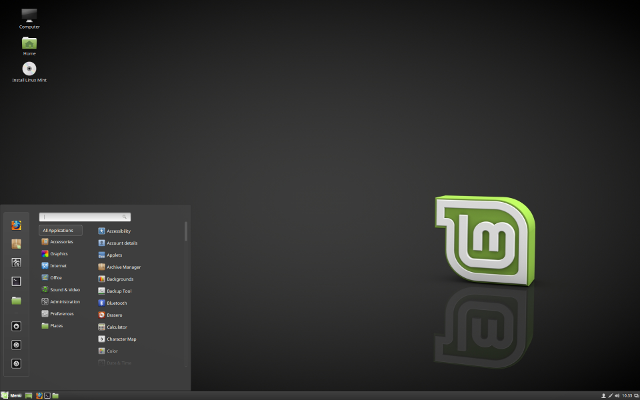
Refreshed stable Linux Mint Debian Edition (LMDE) 2 'Betsy' ISO images now available
Linux Mint is one of the most popular Linux-based desktop operating systems. With that said, did you know there are two versions of the OS? No, I am not talking about the multiple desktop environments, such as Cinnamon, MATE, and KDE. There are actually two entirely different operating systems that share the Mint name. The normal version of Linux Mint is based on Ubuntu, while a lesser known version, LMDE, is based on Debian. Is it confusing? Absolutely. A waste of resources? Probably. But hey, that's the state of Linux on the desktop nowadays.
Linux Mint Debian Edition 2 'Betsy' launched way back in 2015, and hasn't needed a major base upgrade. Instead, LMDE has received a steady stream of updates over the last two years. The problem? The ISO images were very outdated, meaning a fresh install required a lot of updates. As a way to improve the experience, the Linux Mint team has decided to refresh the installation media. Today, refreshed stable Linux Mint Debian Edition (LMDE) 2 'Betsy' ISO images become available, with the choice of either Cinnamon or MATE.

Linux Mint releases BETA versions of refreshed Debian-based LMDE 2 'Betsy' ISO images
Linux Mint is widely known as an Ubuntu-based operating system, but that isn't entirely true. Yes, the main version is based on Canonical's distro, but one version, LMDE, is instead based on Debian. In fact, "LMDE" stands for Linux Mint Debian Edition. Of course, Ubuntu is based on Debian which makes the entire thing even more confusing for users, but I digress.
Today, the Linux Mint Team releases refreshed BETA versions of the LMDE 2 "Betsy" ISO images. What does this mean? There have been many updates since the last version of the ISO was released in 2015, meaning that new installs were very outdated and needed many updates. The Linux Mint team is packaging all of those updates into the ISO so that it is more modern for those doing a fresh install.
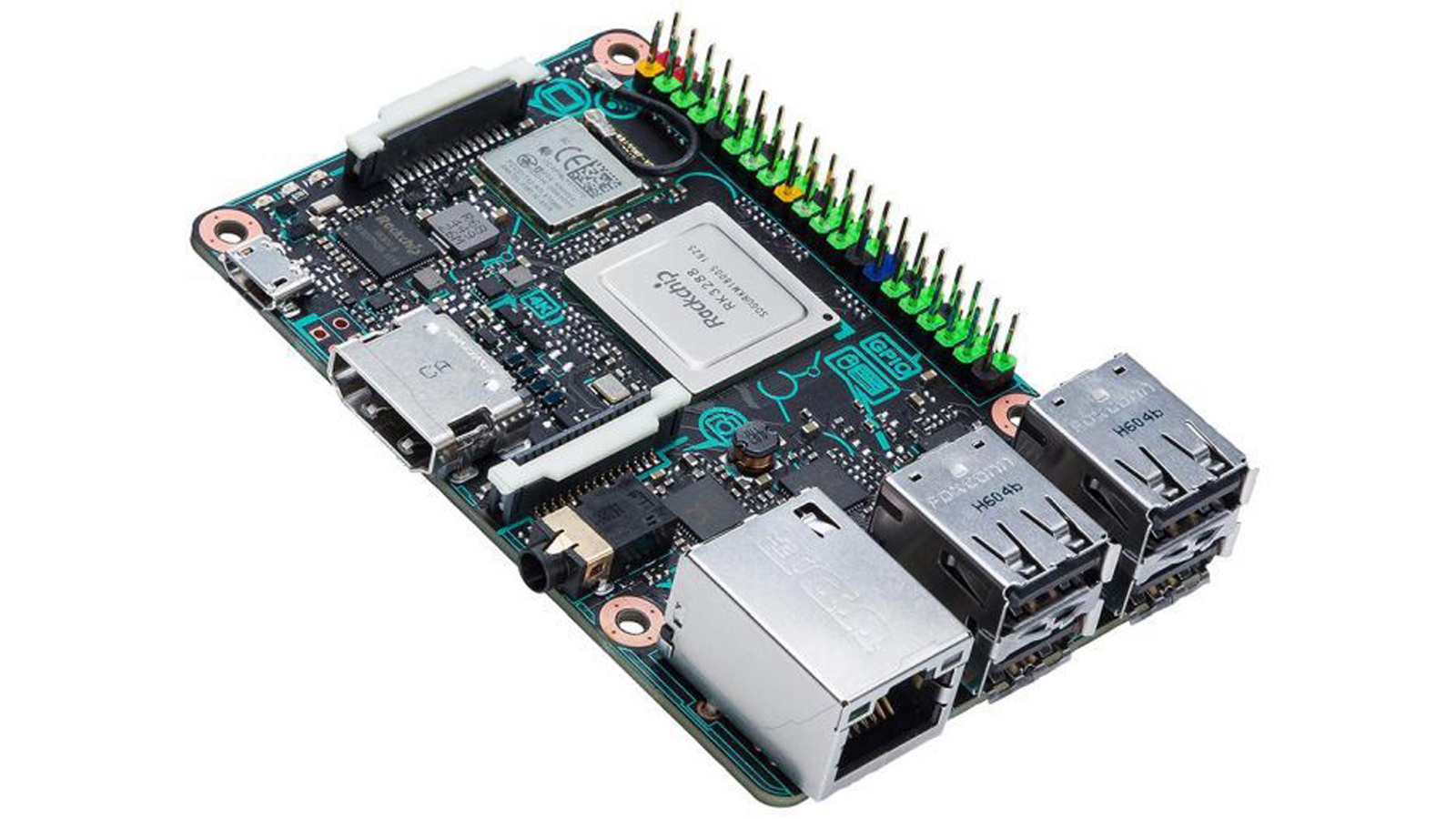
ASUS takes on Raspberry Pi with its 4K-capable, Kodi-ready Tinker Board
If you love Raspberry Pi, but require a little more power for your projects, then ASUS’s Tinker Board could be just what you’re looking for.
Although there’s no shortage of Raspberry Pi alternatives, the low-cost Tinker Board is better than most because its quad-core 1.8GHz ARM Cortex-A17 processor has the oomph to handle 4K video and 24-bit audio, and it comes with twice as much RAM as the latest Pi.
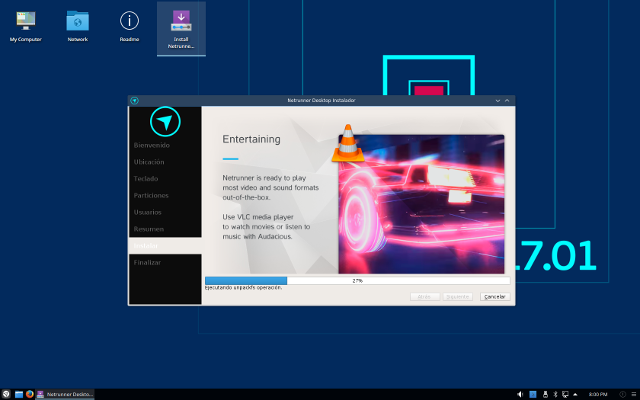
Netrunner Desktop 17.01 'Baryon' Debian 9 Stretch-based KDE Linux distro now available
If you are a fan of KDE, I hope you are aware of Netrunner Desktop. If not, please know that it is one of the most polished Linux distributions available. If you haven't tried it, you definitely should -- it is a wonderful "out of the box" experience. It is a great choice for those looking to switch from Windows too.
Today, the operating system reaches version 17.01. Code-named "Baryon," it is based on the upcoming Debian 9 "Stretch." Users can choose to either run the OS as a stable release or opt for a more bleeding-edge rolling release.
Raspberry Pi's Linux-based PIXEL desktop now available for PC and Mac
If you own a Raspberry Pi, you’re probably familiar with PIXEL. The desktop environment is included in the Raspbian OS.
The Raspberry Pi Foundation describes PIXEL as the "GNU/Linux we would want to use" and understandably so. It offers a smart, clean interface, a decent selection of software, the Chromium web browser with plug-ins, and more -- and from today it’s available for PC and Mac.
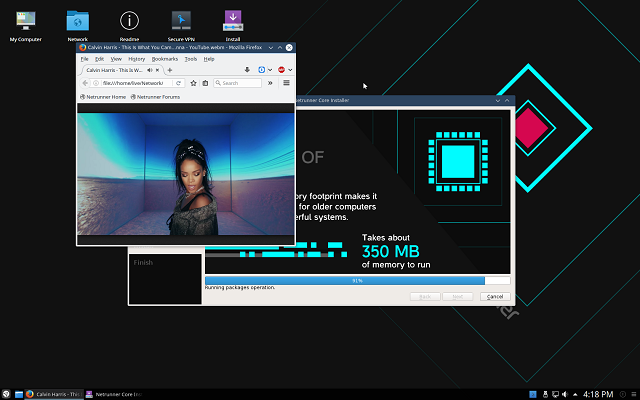
Netrunner Core 16.09 'Avalon' Debian-based KDE Linux distro now available for download
The gift and curse of desktop Linux-based operating systems is the ability to change the desktop environment. On one hand, having the choice to pick your favorite user interface, such as Unity, GNOME, or KDE Plasma, can be a huge positive. On the other, this also creates fragmented experiences between Linux users.
If you are a fan of KDE Plasma, there are plenty of quality distributions available. The overall best for home users, however, is the wonderful Netrunner. You'd be hard-pressed to find another KDE-focused distro with such care and focus on the user experience. Today, a specialized version of the Debian-based operating system, called Netrunner Core, becomes available for download. This pared-down OS is designed for lower-end systems, and there are images for both x86 and ARM.

Snowden: I couldn’t trust Microsoft so I used free software like Tor, Tails and Debian
At the Free Software Foundation's LibrePlanet 2016 conference, Edward Snowden credited free software with enabling him to blow the whistle about government surveillance. Speaking via video link from Russia, the former NSA contractor said that "what happened in 2013 couldn't have happened without free software".
But as well as indicating his preference for free, open source software, Snowden revealed that he refused to use Microsoft software because he "couldn't be sure" that there weren't backdoors built in.
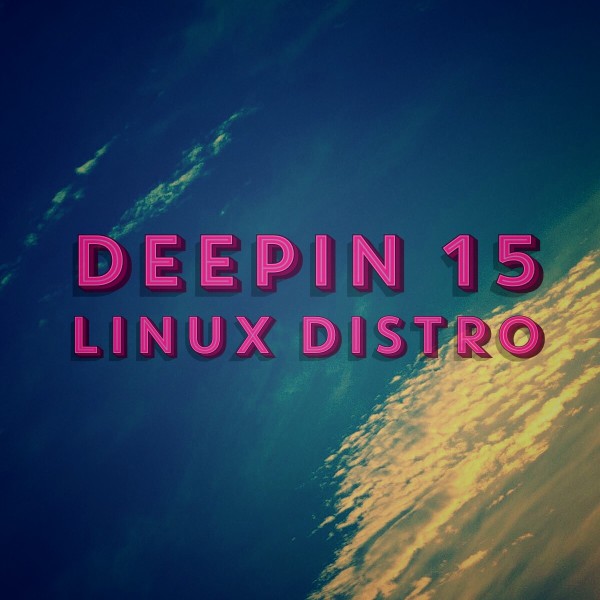
Ring in the new year by installing deepin 15 -- a beautiful Debian-based Linux distribution
As 2015 comes to a close, we must again face the reality that Linux is a failure on the desktop -- its share of the pie is almost nonexistent. While the kernel is wildly popular on smartphones and servers, Windows is still the dominant force on home and business workstations. You know what? That's fine. Regardless of popularity, or lack thereof, desktop operating systems based on the Linux kernel aren't going anywhere. We Linux users aren't going anywhere.
Today, a beautiful operating system from China, deepin, hits version 15. No longer based on Ubuntu -- the project has switched to a Debian base -- it is gorgeous and has an intuitive HTML5-based environment. And yes, it is available in English. Happy New Year, fellow Linux users!

Privacy-focused Tails 2.0 beta 1 Linux distro is here -- Debian 8, GNOME shell classic, and more
With clueless politicians, the media, and scared citizens calling for a ban on encryption, it can feel like the Internet is under attack. Such basic rights to privacy are the foundation of the net -- once we lose them, it can be impossible to get back.
Unfortunately, even mundane aspects of computing, like operating systems -- which should fade into the background -- are threatening our privacy. Windows 10, for instance, sends much data to Microsoft, while Android is partly a means for Google to collect data. Traditional Linux distributions are not inherently privacy-focused, but generally speaking, many are. For the gold standard in privacy and security, Tails -- a distro recommended by Edward Snowden -- can be used. Today, the first beta of the 2.0 version operating system becomes available.

Microsoft brings Debian Linux to Azure
While many Linux users are vocal Microsoft detractors, the truth is, the company is a proponent of the kernel. Yes, in years past, the Windows-maker seemingly looked at Linux with disdain, but times are changing, folks. The company is hiring open source professionals, and even developing apps for the world's most popular Linux distro, Android. Not to mention, Azure has long supported a handful of Linux distributions.
Today, Microsoft is once again embracing Linux by announcing Debian support for Azure. Yes, one of the world's most popular distros is coming to the Azure Marketplace. It is joining other operating systems based on the kernel, such as Ubuntu, RHEL, openSUSE and more.

Debian 8 'Jessie' is here -- download the Linux distro now!
Another day, another Linux distribution. While many distros are yawn-worthy, Debian demands attention. The wildly popular operating system is used by many people, and it is used as a base for many projects. Most notably of late, Raspbian, the often-used operating system for the Raspberry Pi, is based on Debian.
Today, after a long wait, the operating system finally reaches 8.0 with a code name of "Jessie". This gender-neutral named Linux distribution has as ton of changes, with ISOs available featuring multiple desktop environments such as GNOME, KDE and Xfce to name a few. Will you try it?
